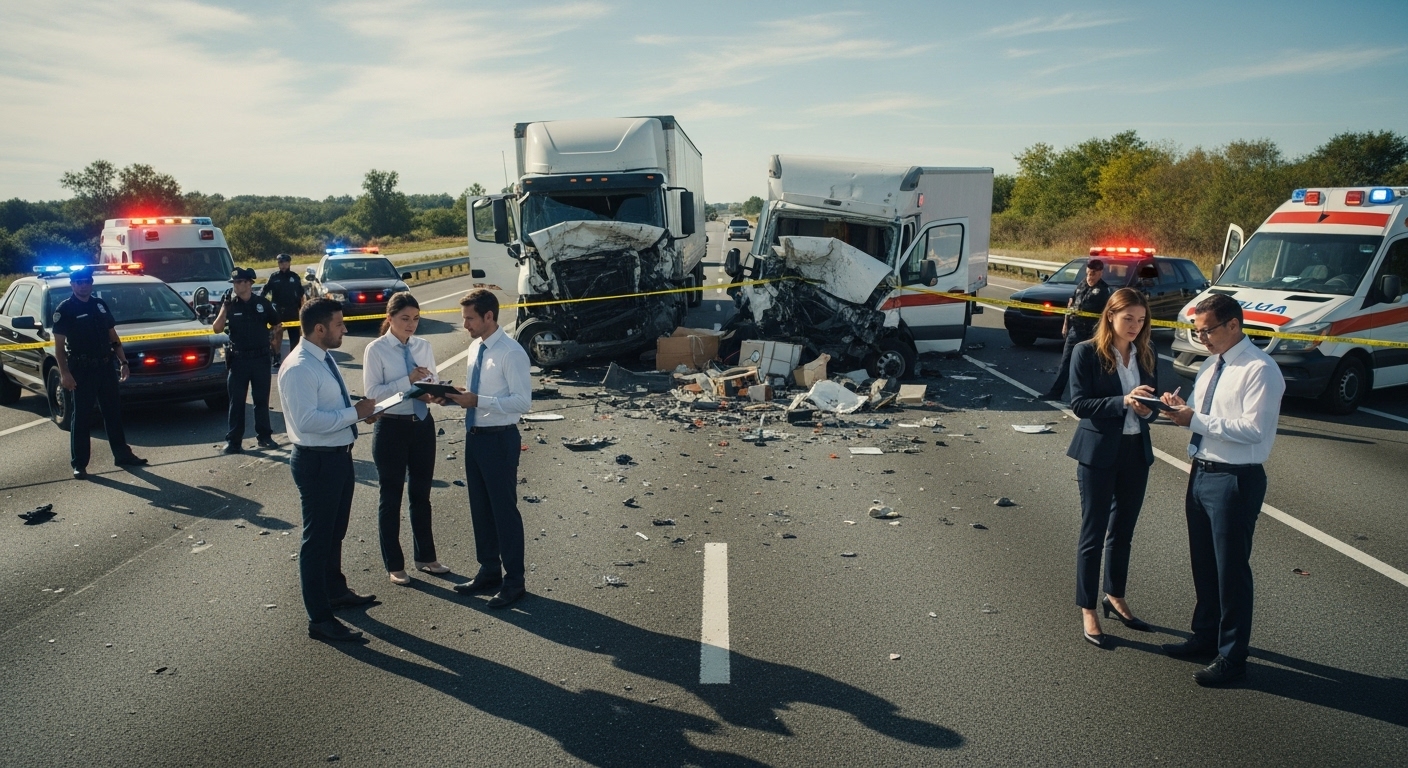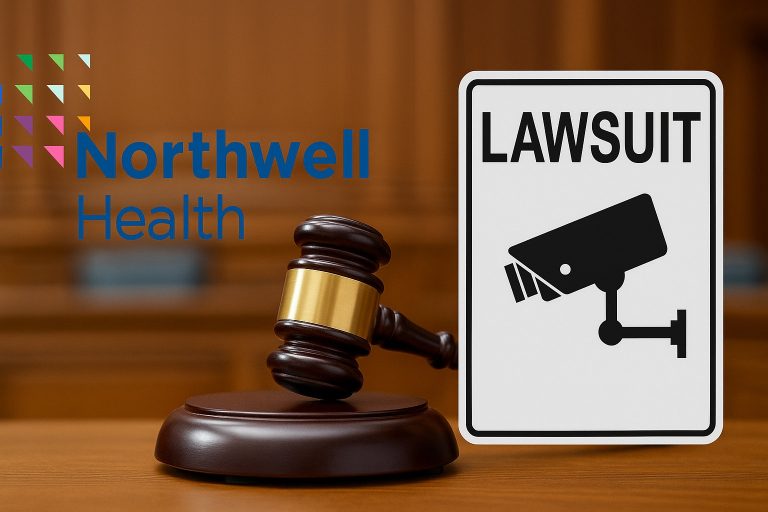Commercial vehicle accidents represent some of the most complex and challenging cases in personal injury law. Unlike typical car accidents, collisions with trucks, delivery vans, and other commercial vehicles introduce layers of legal complexity that can overwhelm even experienced attorneys.
What makes these cases particularly treacherous is the web of potentially liable parties and the intricate federal and state regulations governing commercial transportation. They are further complicated by the aggressive defense tactics of corporate insurers and the specialized evidence required to build a successful claim.
Commercial trucking companies and their insurance carriers have substantial resources and legal teams dedicated to minimizing payouts. They understand the complexities involved and use them to their advantage, creating obstacles at every turn for injury victims seeking fair compensation.
This article explores why these cases are legal minefields and outlines the key challenges injury victims must navigate to pursue a successful claim.
Multiple Parties and Shared Liability
Determining fault in commercial vehicle accidents is far more complex than in typical car crashes. Instead of dealing with one or two drivers, these cases may involve a wide range of potentially liable parties. These can include the truck driver, the carrier, the vehicle owner, cargo loaders, maintenance contractors, parts manufacturers, and even brokers involved in shipment logistics.
Each entity often has separate insurance and legal teams, creating intense disputes and efforts to shift blame. A thorough investigation, reviewing contracts, maintenance logs, and corporate relationships, is essential to ensure no responsible party is overlooked.
Recent legal developments highlight how complicated liability can become. According to Trucking Dive, the Texas Supreme Court reversed a ruling that had held Werner Enterprises liable for more than $100 million in a crash. Calling it a tragic accident on icy roads, the court dismissed the case involving a pickup truck crossing a 42-foot median and striking a tractor-trailer.
Working Through the Heavy Regulatory Framework
Commercial vehicle cases are uniquely challenging because commercial carriers operate under extensive federal and state regulations.
The Federal Motor Carrier Safety Administration (FMCSA) governs driver qualifications, hours of service, vehicle inspections, cargo securement, and fleet maintenance. States then add their own rules on top of these federal requirements, varying by jurisdiction and vehicle type.
This complex framework is constantly evolving. For instance, the U.S. Transportation Department recently issued a warning to a few states about their compliance with English-proficiency rules for commercial drivers.
The agency stated that it will withhold federal funding from these states unless they adopt the required standards. This move highlights how active and consequential federal oversight can be in shaping commercial transportation standards.
Proving regulatory violations can greatly strengthen a plaintiff’s case, but identifying them requires specialized knowledge. Attorneys must analyze ELD data, Hours of Service logs, CDL requirements, and Drug and Alcohol Clearinghouse records. Because defense teams often use this regulatory complexity to obscure liability, prompt legal action is critical to prevent the spoliation of essential evidence.
Unique Evidentiary Challenges in Commercial Vehicle Litigation
Commercial vehicle accidents present unique evidentiary challenges that make truck accident claims far more complex than standard car crash cases. Because of their enormous size and momentum, commercial trucks often obliterate passenger vehicles, scattering debris across wide areas and complicating scene reconstruction.
The severity of these incidents is clear. The NSC reported that 5,375 large trucks were involved in fatal crashes in 2023, an unfortunate 43% increase over the past decade. Given these high stakes, critical evidence, such as black box data or GPS logs, can be lost or overwritten without immediate preservation efforts.
Accident reconstruction requires specialized experts who understand braking dynamics, jackknifing, and rollover forces. Moreover, medical evidence is typically severe, often involving long-term impairments.
As noted by Lesser, Landy, Smith & Siegel, PLLC, a truck accident can instantly upend a victim’s life while insurers quickly work to minimize payouts. These complexities explain why truck accident lawsuits demand extensive resources and meticulous legal strategy from the outset.
Corporate Defense Strategies and Insurance Complications
Commercial vehicle cases are instantly met with aggressive corporate defense. Insurers activate rapid response teams to gather evidence within hours, often before victims leave the hospital, securing statements used later to minimize liability.
Commercial insurance policies carry high limits but involve complex provisions and multiple layers, creating disputes over coverage. Additionally, trucking companies utilize sophisticated defense tactics, including claiming independent contractor status to evade responsibility. They frequently delay litigation, pressuring financially strained victims into inadequate settlements.
Countering these strategies requires equally sophisticated legal representation with the resources to sustain prolonged litigation. Many victims settle for less than their claim’s worth because they lack representation equipped to handle the specialized, aggressive tactics employed by corporate defendants.
Jurisdictional and Procedural Complications
Commercial vehicle cases often become tangled in jurisdictional uncertainty, especially when crashes occur across state lines or involve companies headquartered elsewhere. Determining which state’s laws apply and whether a case belongs in state or federal court can significantly influence the outcome.
The recently introduced FAIR Trucking Act (H.R. 5268) attempts to streamline this process. It would grant federal courts jurisdiction over commercial vehicle accident cases exceeding $5 million in damages when the parties are from different states. While it appears to offer clarity, critics warn it may be legislative sleight of hand that overlooks deeper systemic problems within the industry.
These challenges play out amid the rise of jury awards exceeding $10 million, many of which stem more from emotional persuasion than factual liability. Combined with extensive discovery and aggressive motion practice, commercial vehicle cases become far more demanding than typical personal injury claims.
Frequently Asked Questions
What is the most common cause of road accidents involving commercial vehicles?
Driver error is the most common cause of road accidents involving commercial vehicles. Factors such as fatigue, distracted driving, speeding, and inadequate training significantly increase crash risk. Long hours, tight delivery deadlines, and complex vehicle handling demands make human mistakes far more likely in commercial trucking than in standard passenger vehicles.
Why are commercial vehicle accident settlements typically higher than regular car accidents?
Commercial vehicle accidents generally cause more severe injuries due to size and weight disparities, resulting in greater medical expenses and more significant life impacts. Additionally, commercial vehicles carry higher insurance policy limits, often ranging from hundreds of thousands to millions of dollars. The multiple potentially liable parties and complex liability issues also contribute to higher settlement values.
Can I handle a commercial vehicle accident claim without an attorney?
Handling a commercial vehicle accident claim without an attorney is risky. These cases involve multiple liable parties, complex federal regulations, and aggressive insurance defense teams. Without legal expertise, victims often lose critical evidence or accept low settlements. An experienced lawyer greatly improves the chances of securing fair and full compensation.
Commercial vehicle litigation is far more complex than standard crash cases, demanding rapid evidence preservation and a highly skilled legal strategy. With rising claim values and evolving federal oversight, victims face an uneven playing field against corporate defendants. Strong, experienced representation is essential to ensure accountability and secure fair compensation.




